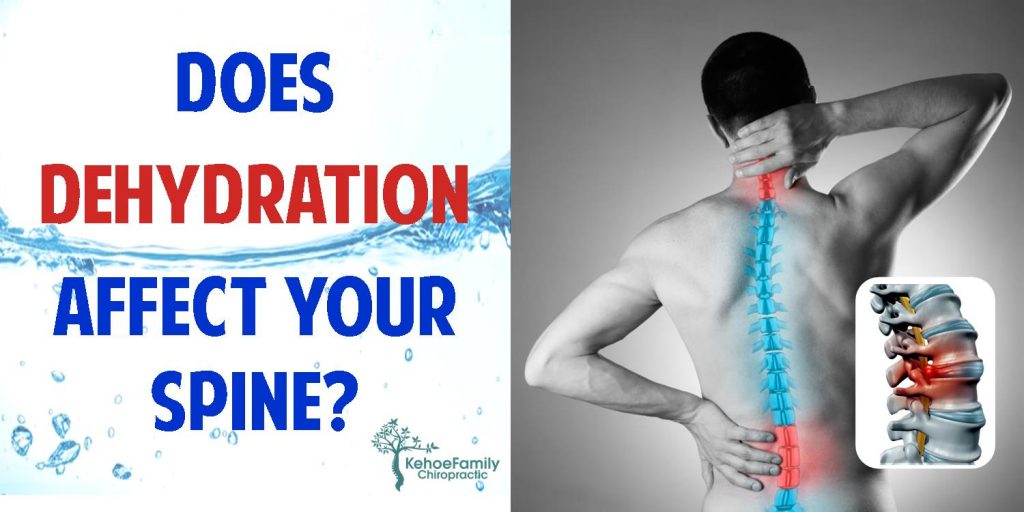Does Dehydration Affect Your Spine?

The spine is a flexible armor that protects a portion of the nervous system called the spinal cord. The spine is made up of discs and boney vertebrae. The discs act as shock absorbers dissipating harmful forces. The discs also aid in flexibility and provide a space for the nerves to exit the spinal cord without pressure or irritation.
Spinal discs contain a lot of water and can lose hydration throughout the day with the pressure of gravity and with strain on the spine. Therefore, it is important to replenish that water or the discs can become vulnerable to damage which can affect our flexibility and can cause irritation to spinal nerves.
Healthy spines re-hydrate at night when the body is in a laying position. However this process of re-hydrating is only possible if you have consumed enough water in the day and your spine is in good alignment. Under these conditions the spine remains flexible and can continue to do its job protecting the spinal cord and nerves.
Dehydrated spinal discs hamper mobility causing wear and tear on stability structures of the spine like ligaments, tendons and muscles. Over time this can cause irreversible damage that can lead to chronic back pain and neurological interference.
People of all ages can have dehydrated discs. When you are young you may not feel pain but the degenerative process in the dehydrated, misaligned spine has likely begun. Eventually back pain will plague individuals who have not tended to the alignment and hydration of their spine.
To maintain good spinal health be sure to drink half your body weight in ounces of water each day. Certain medications, excessive sweating, illness and/or medical conditions may require more water to maintain healthy hydration so be sure to take these factors into consideration as well. Of course maintaining good spinal alignment with regular chiropractic check-ups will also minimize the dehydration of your discs and keeps the spine flexible and you in tip, top shape.
